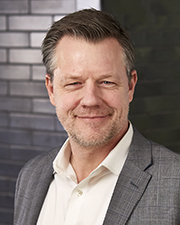Sustainable urbanization of the world’s most underdeveloped cities - by Oliver Schaper

In April, the United Nations Human Settlements Programme, UN-Habitat, and the United Nations Capital Development Fund joined hands to strengthen The Cities Investment Facility (CIF) which aims to unlock institutional and commercial capital to finance sustainable and masterplan-integrated municipal development projects. As part of the CIF, the Cities Investment Advisory Platform (CIAP) bridges the gap between the conceptualization of urban infrastructure projects and investor requirements, providing advice to projects procured by UN-Habitat and its partners for this initiative including Global Development Incubator, Resilient Cities Catalyst, Smart Cities Network, and the International Municipal Investment Fund.
At the Eleventh Session of the World Urban Forum on June 26 to 30, in Katowice, Poland, Gensler signed a commitment to help the United Nations advance sustainable development and provide concepts to mid-stage preparation for projects in the CIF pipeline. As a global design firm, we approached this initiative with a broad range of expertise across cities and urban planning, healthcare, housing, and mobility expertise to help position cities for their futures. The objective of this partnership with UN-Habitat is to impart positive impact on communities around the world through three central instruments: investment, advisory, and implementation.
“We are behind our targets to reach the 2030 Global Agenda and the Sustainable Development Goals. To achieve progress and accelerate change, we need urgent local action,” said Neil Khor, programme director of the Cities Investment Facility. “Cities can benefit from access to financial and advisory services to develop impactful projects and deliver the much-needed change.”
In our commitment to the CIF and CIAP, Gensler will respond to requests for advisory services through a pool of resources including guidance on how cities can best approach design and planning, research, and community engagement. Our firm will advise on requests regarding design and planning, provide input on technical feasibility in relation to the physical built environment, and leverage The Gensler Research Institute which is our global network of researchers committed to identifying insights that lead to new strategies that will define the future design of our cities. We also will support CIF fundraising activities through its global network of investors, developers, and consultants in the private and public sector to raise awareness of critical projects.
As the CIF gains momentum, we envision their impact will lead to thriving neighborhoods, affordability, and multimodal transportation – all foundations of a great city as our Cities Pulse Survey research has also indicated. Cities, especially those in underdeveloped countries, have challenges ahead. As the effects of rising population and climate change cause larger and more damaging weather events, investments in initiatives like the CIF will continue to reshape the urban experience for the better.
Sustainability and climate action are both moral and business imperatives for us. At the United Nations Climate Action Summit in September 2019, Gensler Co-CEO Diane Hoskins introduced Gensler Cities Climate Challenge (GC3), our vision for all our work to be completely carbon neutral by 2030. To reach these goals and help others to do the same will require collective action to ensure design acts as a catalyst for socially sustainable urban transformation and create more inclusive, resilient, and healthy cities.
Oliver Schaper is principal & global cities & urban design resilience leader at Gensler, New York, NY.
Newmark negotiates sale of 10 Liberty Sq. and 12 Post Office Sq.


Four tips for a smooth 1031 Exchange - by Bill Lopriore

How COVID-19 has impacted office leasing - by Noble Allen and John Sokul

Five ways to ruin a Section 1031 Like-Kind Exchange - by Bill Lopriore








